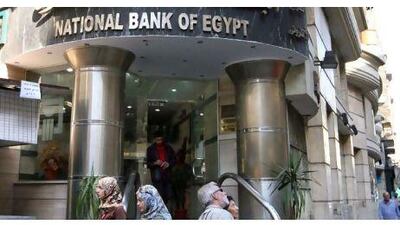The political turmoil spreading across the Middle East is rippling through the region's financial order, leading to sovereign credit downgrades and further credit-rating actions on companies with links to regional trouble spots.
The world's three big credit ratings agencies have either downgraded or put negative outlooks on the sovereign ratings of Egypt, Tunisia, Jordan, Bahrain and Libya in recent weeks, coinciding with a rise in yields on debt across the region. Higher yields reflect investors' concern about the stability of government finances.
The downgrades follow growing uncertainty about the region's financial state after the unrest, say economists. With discontent over rampant youth unemployment spreading, unpopular economic policies and government corruption, ratings agencies are growing increasingly concerned about the strain on government finances.
"The way to think about this is that a rating for a country is the same as a rating of a corporate," said Mark McFarland, the emerging markets economist at Emirates NBD in Dubai.
"The higher the rating, the more secure the cash-flow position. [The downgrades] are signalling the market is less convinced that the payment streams for the [interest] and principal is guaranteed to happen on time."
That lack of conviction could trickle down to companies wishing to finance everything from machinery to new offices through loans and bonds. Sovereign bond yields, which have risen since the downgrades, are often used as a basis for interest rates on corporate debt. Yields on Bahrain government bonds that mature in 2020 rose to 6.5 from 5 per cent between January 25 and last Friday. Egyptian sovereign bond yields have also risen.
The rising yields follow a spate of sovereign downgrades.
Standard & Poor's (S&P) and Fitch Ratings downgraded Libya's sovereign rating as violence escalated there last week.
Moody's Investors Service lowered Jordan's outlook to "negative" and S&P downgraded its currency ratings on February 8. Moody's downgraded Tunisia's ratings in January, while Fitch and S&P put it on review for a downgrade.
Moody's, Fitch and S&P downgraded ratings for Egypt following the turmoil there.
S&P downgraded Bahrain, while Moody's and Fitch put it on review for a possible downgrade.
The sovereign downgrades have also resulted in downgrades of dozens of companies based in those countries. They include Jordan's Arab Bank and Cairo Amman Bank, which S&P downgraded on February 14, and Egypt's National Bank of Egypt, Banque Misr, Banque du Caire, Commercial International Bank and Bank of Alexandria, which Moody's downgraded this month.
Bahraini institutions have also been subjected to downgrades, including Arab Banking Corporation, which has financial and ownership ties to Libya.
S&P says its action "reflects concerns that the current turmoil in the region, following events in Egypt and Tunisia, could also potentially have a negative impact on economic activity in Jordan".
But concern about the possibility of rising government spending - and the widening government budget deficits that may result - are largely driving the ratings actions.
In placing Bahrain on review for a possible downgrade last Wednesday, Moody's said "efforts by the authorities to appease discontent are likely to lead to further increases in government expenditure", sending Bahrain further in "the loosening direction of the country's public finances".
Another effect of the downgrades could be that some funds investing in regional bonds are forced to sell their holdings, said Mr McFarland.
Many bond funds have minimum credit-rating thresholds that could have been crossed with the recent downgrades.
This could further depress prices on debt and lead to higher yields.

